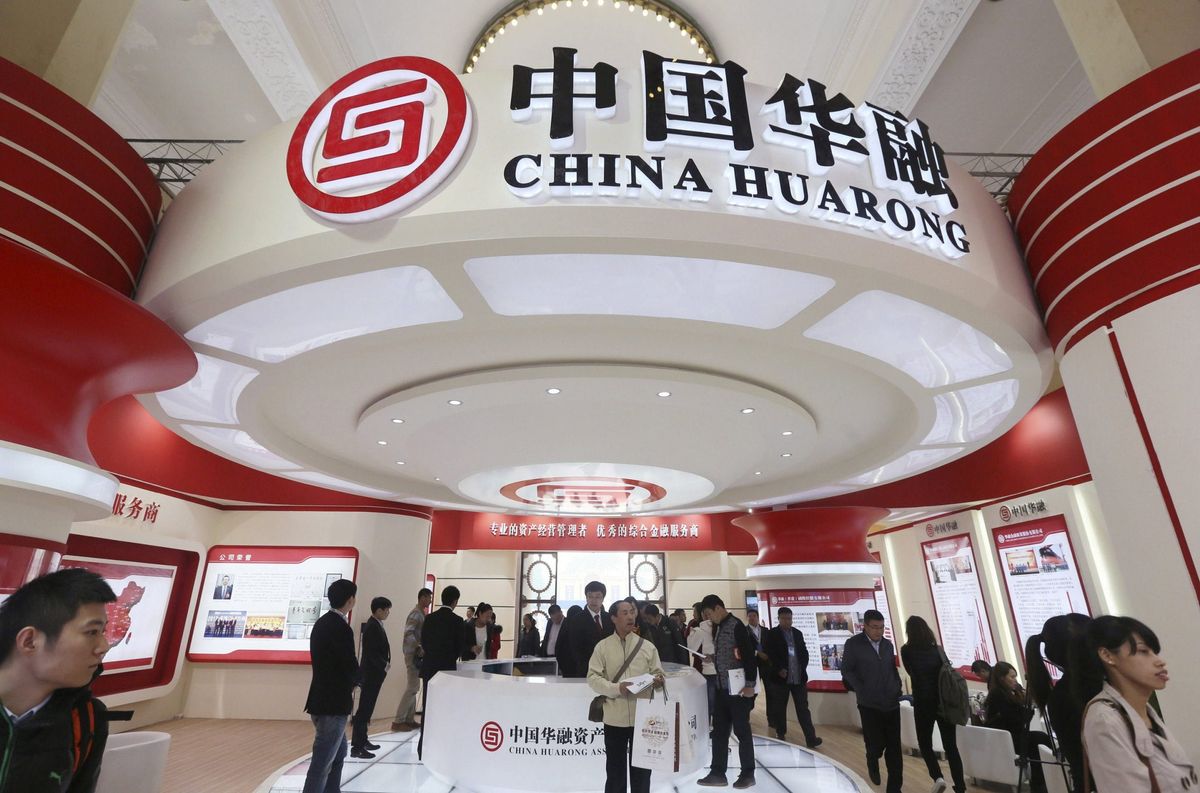The executed Lai Xiaomin left China Huarong teetering on the brink. Will Beijing save it?

A few minutes every morning is all you need.
Stay up to date on the world's Headlines and Human Stories. It's fun, it's factual, it's fluff-free.
China Huarong’s initial business was based on acquiring nonperforming loans to combat the threat of a potential financial collapse. As of June, Huarong sat on 1.28 trillion yuan (US$196 billion) of debt and 1.74 trillion yuan (US$266 billion) of liabilities.
China Huarong Asset Management Co., China’s largest distressed asset manager, is struggling to pay off its debt acquisitions of US$22 billion in bonds. China Huarong’s recent dilemma comes after the company’s chairman, Lai Xiaomin, was sentenced to death and subsequently executed for receiving bribes and committing bigamy.
The company’s future is still in question as it recently announced its inability to release its 2020 financials on time.
China Huarong’s history
In 1997, most of Southeast Asia was subjected to a financial crisis in Thailand after its currency collapsed. China was largely unaffected by the financial crisis when compared to Southeast Asia and South Korea. However, the growth of China’s gross domestic product (GDP) slowed sharply in 1998 and 1999, calling attention to structural problems within its economy.
The Asian financial crisis was a stark reminder for China to resolve its economic weaknesses, such as having too many nonperforming loans within its banking system. In response to the 1997 Asian financial crisis, China Huarong Asset Management Co. was founded in Beijing in 1999 along with three other major asset management companies by the State Council of the People’s Republic of China.
China Huarong’s initial business was based on acquiring nonperforming loans to combat the threat of a potential financial collapse. As of June, Huarong sat on 1.28 trillion yuan (US$196 billion) of debt and 1.74 trillion yuan (US$266 billion) of liabilities. Among the liabilities, about half are loans from banks and other financial institutions while roughly another 20% are bonds and notes issued by Huarong.
However, about one-third of Huarong’s 1.74 trillion yuan of liabilities is tied up in former boss Lai Xiaomin’s unauthorized investments.
Lai Xiaomin’s illegal activities and execution
Lai Xiaomin started serving as president of China Huarong Asset Management in January 2009. In September 2012, he was promoted to the company’s top position, becoming its board’s chairman. Lai was a member of the Chinese Communist Party (CCP) and served as the party secretary of China Huarong Asset Management’s CCP Committee.
In April of 2018, Lai was placed under investigation for alleged political graft by the Central Commission for Discipline Inspection (CCDI), the party’s internal disciplinary body. He was also formerly investigated by the highest anti-corruption agency in China, the National Supervisory Commission. Lai was subsequently expelled from his office and position in October of 2018.
Within three months of his removal, Lai confessed to stashing nearly 200 million yuan in his apartment in a state televised event. Lai has also been accused of accepting 1.79 billion yuan (US$274 million) of bribes for 10 years while also having over 100 mistresses whom he provided properties for that had been developed by a subsidiary of Huarong.
During the formal investigation, the former boss of Huarong was also found to have a secret family – including a wife and two sons – without the knowledge of his current wife and daughter.
In August of 2020, Lai was put on trial and pleaded guilty to accepting 1.79 billion yuan in bribes and being involved in vast corruption and bigamy over a 10 year period. On January 5, 2021, Lai was sentenced to death for bribery, bigamy and embezzlement. Twenty four days after his sentencing, Lai was executed for his crimes.
Huarong’s future
Beijing has yet to comment on Huarong’s growing financial problems as a result of Lai’s actions. Instead of offloading China’s commercial banks’ unpaid debt – which was Huarong’s official mandate and primary founding function – Lai decided to get involved in various financial opportunities, including everything from private equity to junk bond trading.
China Huarong currently holds a substantial amount of debt, its bond values have drastically decreased and the company is in structural disarray since Lai’s trial and execution.
In a statement this week, the State Council urged local government financing entities to restructure or enter liquidation if they can’t repay their debts. While this message wasn’t directly pointed at China Huarong, the statement shows that the government takes a hard stance against companies that present potential risks to the financial system.
Investors are currently waiting for the company’s 2020 annual results, but Huarong has been slow to release the information. Caixin, an influential Chinese financial news outlet, reported that the delay was due to significant restructuring.
“It is unclear what the details of the relevant transaction are and when its 2020 annual results will be published," David Yin, a senior analyst at Moody’s Investors Service, noted in a report.
“The potential impact on [Huarong’s] credit profile is uncertain, because there are a number of diverse scenarios that could affect its [baseline credit assessment] and potential government support."
Have a tip or story? Get in touch with our reporters at tips@themilsource.com




Comments ()